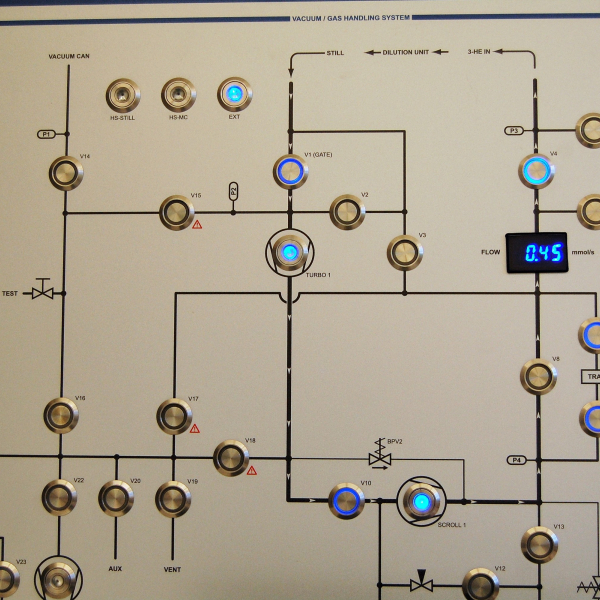Quantum Measurements
Quantum mechanics, which underpins almost every aspect of our physical world, has an inherent complexity far beyond what we observe and beyond what we could ever hope to fully understand – our goal is to harness this incredible complexity for seemingly impossible tasks – stretching the limits of physical laws and exceeding the capabilities of the fastest computers.
Professor Kater Murch’s group uses nano-fabrication techniques to construct superconducting quantum circuits that allow them to probe fundamental questions in quantum mechanics.
Recently quantum sensors based on solid-state spin defects have emerged as localized probes for a myriad of signals, including magnetic and electric fields, strain and temperature. Compared to conventional methods, such platform offers nanoscale spatial resolution and the ability to operate under a wide variety of external conditions — e.g. ranging from cryogenic (∼ 10 mK) to high temperatures (∼ 600 K), from ambient to megabar pressures and in the case of biological samples, directly in-vivo.
Chong Zu's group is interested in employing solid-state quantum sensors as a unique and versatile tool to explore novel phenomena in physical, chemical and biological systems.

